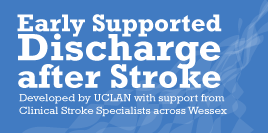 |
Dysphagia |
"The majority of patients presenting with dysphagia following stroke will recover, in part due to bilateral cortical representation of neurological pathways (Hamdy et al. 1998). However, a proportion will have persistent abnormal swallowing physiology and continued aspiration at 6 months (Mann et al. 1999a). A small proportion of patients with dysphagia particularly those with brain-stem lesions will have chronic severe swallowing difficulties. Patients with persistent swallowing problems may avoid eating in social settings, and thus lose the physical and social pleasures normally associated with food. Aspiration and silent aspiration are common after stroke. There is good evidence for the investigation of dysphagia using instrumental assessments that provide direct imaging for evaluation of swallowing physiology, help to predict outcomes and improve treatment planning."
(ISWP, 2012, p100)
 |
 |
 |